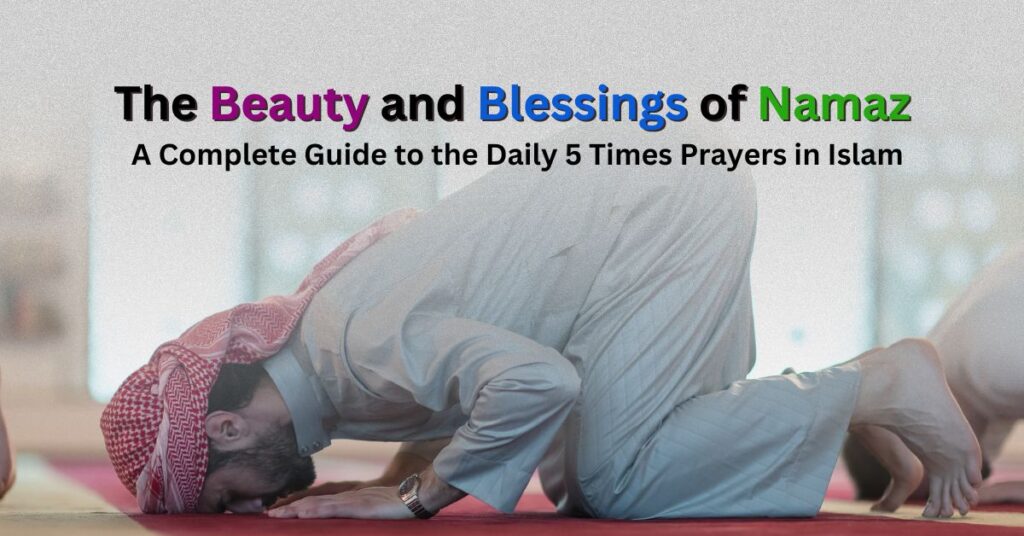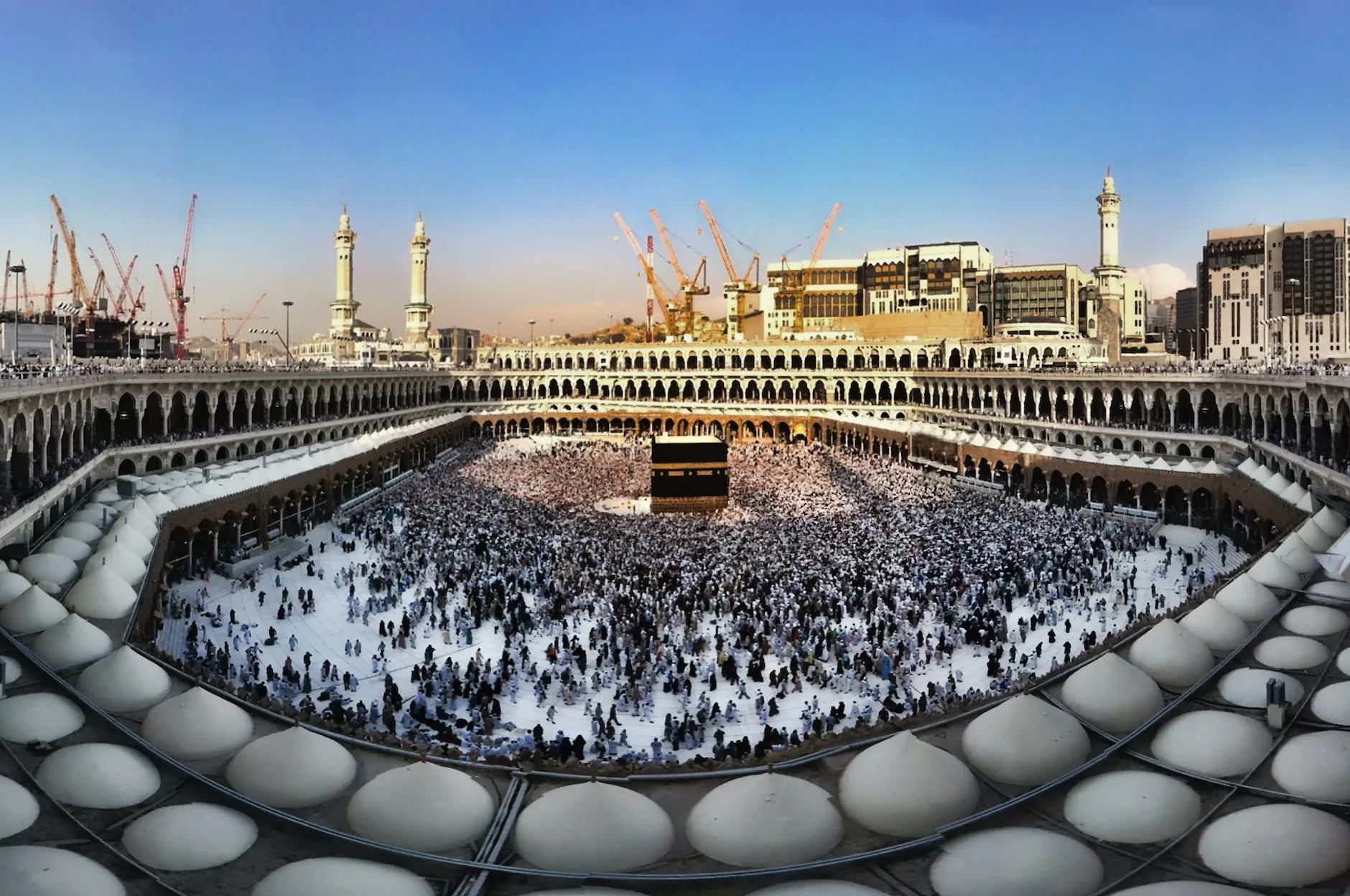Namaz: A Daily Reminder of Allah’s Infinite Mercy

Every day, Muslims around the world pause from their routines, bowing down in humble submission, reciting words that bridge the distance between their hearts and Allah. But namaz (Salah) is not just a routine. It is a conversation with the Almighty, a daily reminder of His mercy and a guiding light that brings peace in this chaotic world. Whether at dawn or the stillness of night, each prayer carries unique blessings and virtues. In this blog, we’ll explore what makes namaz so precious, the history behind it, and why it is the key to a fulfilling life.
Sample Section: What is Namaz?
Namaz, or Salah, is the Islamic act of worship that connects Muslims with Allah five times a day. It is the second pillar of Islam and is mentioned numerous times in the Quran, emphasizing its importance in a Muslim’s life. The word “Salah” originates from Arabic, meaning “connection” or “communication,” which highlights that prayer is a direct bond between the worshiper and Allah.
Quranic Reference:
In Surah Al-Baqarah, Allah says, “Establish Salah, and indeed, Salah prevents immorality and wrongdoing.” (Quran 29:45). This verse reminds Muslims that namaz is not only a ritual but also a form of discipline that protects the heart and mind from harm.
Why is Namaz Important?
Namaz is more than a duty; it is a profound gift from Allah that provides a sense of tranquility, purpose, and structure in life. Performing namaz regularly helps to cleanse the heart and keep it inclined toward goodness. It also serves as a form of personal development, teaching patience, humility, and gratitude.
Spiritual Benefits: Namaz purifies the soul by reminding Muslims of Allah’s greatness and mercy. It serves as a reminder that Allah is always watching, encouraging Muslims to stay away from sins.
Mental and Physical Benefits: Namaz also helps in relieving stress, enhancing focus, and bringing peace to the mind. The physical movements in prayer – bowing, prostrating, and standing – improve blood circulation, posture, and flexibility. Thus, namaz provides both spiritual elevation and physical exercise.
Quranic Reference:
Allah says, “And establish prayer to remember Me.” (Quran 20:14). This verse reflects that namaz is an opportunity to remember and connect with Allah, and in doing so, Muslims find peace and comfort.
History of Namaz in Islam
The story of how namaz was revealed is truly one of the most inspiring moments in Islamic history. During the miraculous journey of Isra and Miraj, Prophet Muhammad (PBUH) was taken from Mecca to Jerusalem and then lifted to the heavens. On this extraordinary night, Allah blessed the Muslim community with the gift of namaz, making it a cornerstone of faith and worship.
Initially, fifty prayers were required, but the Prophet (PBUH), out of mercy for his followers, requested that Allah reduce the number. Eventually, Allah made it five daily prayers, each with the reward of ten, so performing five prayers grants the reward of fifty.
Reference from Hadith:
The Prophet Muhammad (PBUH) said, “The five daily prayers were prescribed during the night of Miraj.” This hadith reminds Muslims of the value and significance of each prayer.
Who is Required to Pray?
Namaz is obligatory for every adult Muslim who is of sound mind. Children are encouraged to start practicing namaz from a young age to instill the habit, but it only becomes obligatory at puberty.
Exemptions:
- Women during menstruation or postpartum bleeding are exempt from performing namaz.
- The sick or elderly who cannot perform the physical actions may pray sitting or lying down.
Qasr Namaz
In Islam, travelers are granted a special concession called Qasr (shortening of prayers) as a form of mercy and ease from Allah. When on a journey, a Muslim is allowed to shorten the four-rakat prayers—Dhuhr, Asr, and Isha—to two rakats each. This is a blessing that makes it easier for Muslims to fulfill their prayer obligations even in the challenges of travel, reflecting Islam’s adaptability to the believer’s circumstances.
Quranic Reference:
Allah says, “And when you travel throughout the land, there is no blame upon you for shortening the prayer…” (Quran 4:101). This verse assures Muslims that Allah understands the difficulties of travel and has provided a way to ease the burden while maintaining the connection through prayer.
This concession is a reminder of Allah’s mercy and compassion, encouraging Muslims to prioritize their prayers even when away from home. Qasr prayer not only lightens the physical demands of prayer but also shows that Allah values the well-being of His followers.
Quranic Reference:
Allah says, “Pray as you are able,” (Quran 64:16), showing that Islam takes into consideration the capabilities and circumstances of each individual.
Different Types of Prayers
In Islam, prayers are classified into three main categories based on their importance: Fardh (obligatory), Sunnat (recommended), and Nafl (optional).
- Fardh (Obligatory): These are mandatory prayers that every Muslim must perform. Missing these prayers without a valid reason is considered a sin. The five daily Fardh prayers are: Fajr, Dhuhr, Asr, Maghrib, and Isha.
- Sunnat (Recommended): These are prayers that the Prophet Muhammad (PBUH) performed regularly and are highly encouraged. Praying them brings extra rewards and strengthens the connection with Allah.
- Nafl (Optional): These are voluntary prayers that a Muslim can pray for additional blessings. They are not obligatory, and there is no sin if one chooses not to perform them.
Hadith Reference:
The Prophet Muhammad (PBUH) said, “The first thing a person will be called to account for on the Day of Resurrection is the prayer. If it is found to be complete, then it will be recorded as complete.” This hadith shows the importance of maintaining both obligatory and recommended prayers.
Hadith Source: Sunan Abi Dawood Hadith Number: 864
Timings and Number of Rakats in Each Prayer
Here is a breakdown of the rakats (units) and timings for each prayer:
- Fajr (Dawn)
- Sunnat Mokadda – 2 Rakats (Required to pray)
- Fardh – 2 Rakats (Required to pray)
- Virtue: Performing Fajr is said to bring protection from Allah throughout the day.
- Dhuhr (Midday)
- Sunnat Mokadda – 4 Rakats (Required to pray)
- Fardh – 4 Rakats (Required to pray)
- Sunnat Mokadda – 2 Rakats (Required to pray)
- Nafl – 2 Rakats (Optional, no harm if not prayed)
- Virtue: This prayer is known to increase one’s provisions and sustenance.
- Asr (Afternoon)
- Sunnat Ghair Mokadda – 4 Rakats (Optional, no harm if not prayed)
- Fardh – 4 Rakats (Required to pray)
- Virtue: Praying Asr is a means to earn Allah’s mercy and prevent one from sinning.
- Maghrib (Sunset)
- Fardh – 3 Rakats (Required to pray)
- Sunnat Mokadda – 2 Rakats (Required to pray)
- Nafl – 2 Rakats (Optional, no harm if not prayed)
- Virtue: This prayer brings blessings in family life and protects from the dangers of the night.
- Isha (Night)
- Sunnat Ghair Mokadda – 4 Rakats (Optional, no harm if not prayed)
- Fardh – 4 Rakats (Required to pray)
- Sunnat Mokadda – 2 Rakats (Required to pray)
- Witr – 3 Rakats (Required to pray)
- Nafl – 2 Rakats (Optional, no harm if not prayed)
- Virtue: Praying Isha and Witr is known to bring rest and peace in life and rewards in the Hereafter.
Quranic Reference for Timings:
Allah says, “Indeed, prayer has been decreed upon the believers a decree of specified times.” (Quran 4:103). This verse emphasizes the importance of praying each salah at its specific time.
Virtues of Each Prayer
Each prayer carries unique rewards and virtues. Here’s a summary:
- Fajr: “Whoever prays Fajr is under the protection of Allah.” (Hadith – Sahih Muslim)
- Dhuhr: Strengthens one’s faith and brings blessings in sustenance.
- Asr: Protects against forgetfulness and strengthens patience.
- Maghrib: Brings protection for the evening and blessings in family life.
- Isha: Provides peace, forgiveness, and rest.
Is There a Difference Between Men’s and Women’s Prayers?
In Islam, the method of performing namaz is generally the same for both men and women, with only slight differences in posture that are based on modesty and comfort. For example, women may sit differently in prayer for greater ease and modesty. However, these variations do not affect the core aspects of the prayer.
Religious Basis:
There is no specific command in the Quran that requires women to pray differently than men; these differences are recommended in some Islamic schools of thought for modesty, not as a religious obligation.
Hadith Reference:
The Prophet Muhammad (PBUH) said, “Pray as you have seen me praying.” This implies that the prayer is fundamentally the same for both men and women, with some flexibility to account for physical comfort and modesty. Hadith Source: Sahih al-Bukhari Hadith Number: 631
Conclusion
Namaz is a divine gift that brings light, peace, and blessings into the lives of Muslims. It strengthens the soul, increases patience, and brings one closer to Allah. Every prayer serves a unique purpose and offers special rewards, as prescribed in the Quran and Sunnah. As Muslims, maintaining regular namaz is not only a duty but a privilege, a means of connection to Allah, and a way to earn success in this life and the Hereafter. Let us hold firm to this pillar of faith and remember the promise of Allah’s mercy and guidance.
Also Read :


